Question And Answer
Publications
Articles, publications, books, tools and multimedia features from the U.S. Institute of Peace provide the latest news, analysis, research findings, practitioner guides and reports, all related to the conflict zones and issues that are at the center of the Institute’s work to prevent and reduce violent conflict.
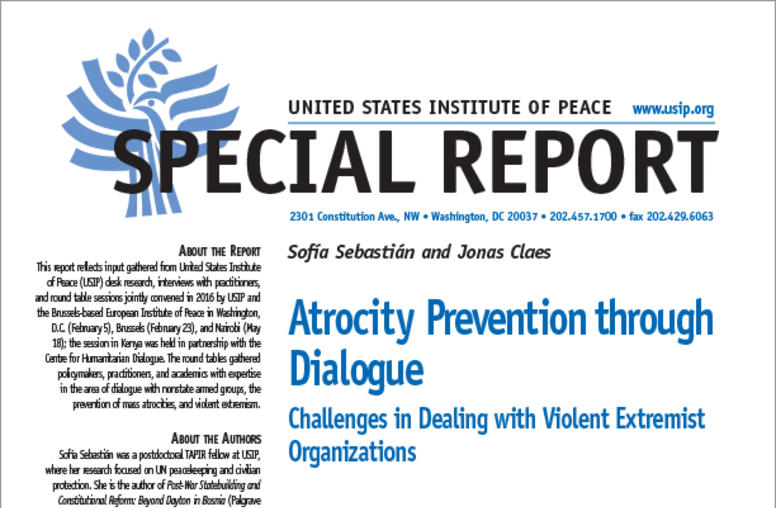
Atrocity Prevention through Dialogue
Dialogue with violent extremist groups is a controversial practice, even when used to prevent widespread violence or atrocities. Humanitarian dialogue may serve as a crisis-mitigation instrument, offering short-term relief and civilian protection. When the risk of atrocities is remote, political dialogue can be used for structural or upstream prevention aimed at conflict resolution or addressing community grievances. Though dialogue as a peacebuilding tool has potential in any stage of a conf...
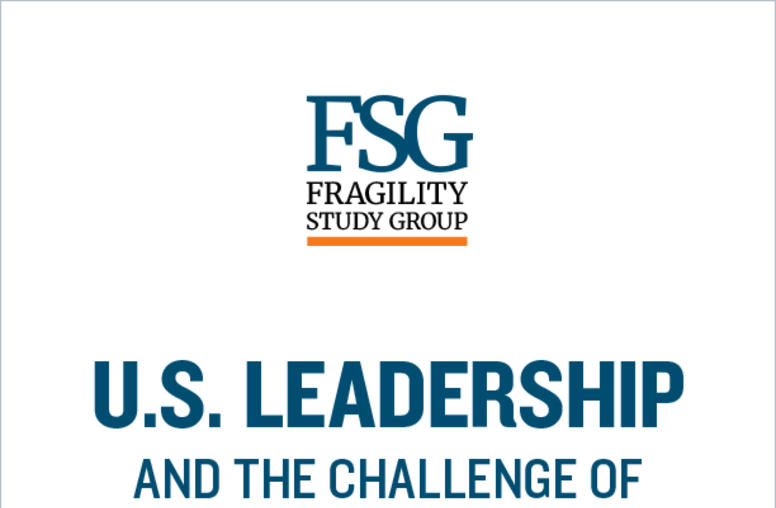
U.S. Leadership and the Challenge of ‘State Fragility’
The new administration, a coming change in leadership at the United Nations, and an emerging global consensus about the fragility challenge make this an opportune moment to recalibrate our approach. The United States cannot and should not try to “fix” every fragile state. Nor can we ignore this challenge; all fragility has the potential to affect U.S. interests to some extent, especially when left to fester. There is simply too much at stake for our interests, our partners, and the global ord...
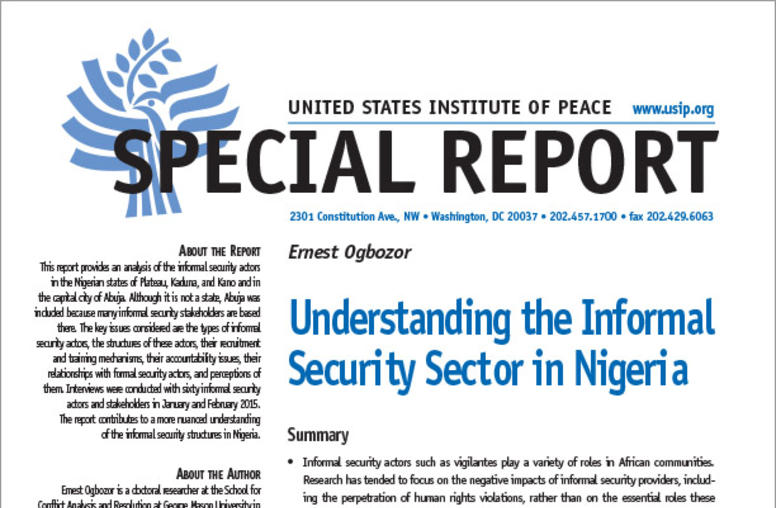
Understanding the Informal Security Sector in Nigeria
Informal security actors such as vigilantes play a variety of roles in African communities. Research has tended to focus on the negative impact of informal security providers, but these groups have an essential role in a community’s safety and security. This report provides an analysis of the informal security actors in the Nigerian states of Plateau, Kaduna, and Kano and in the capital city of Abuja.
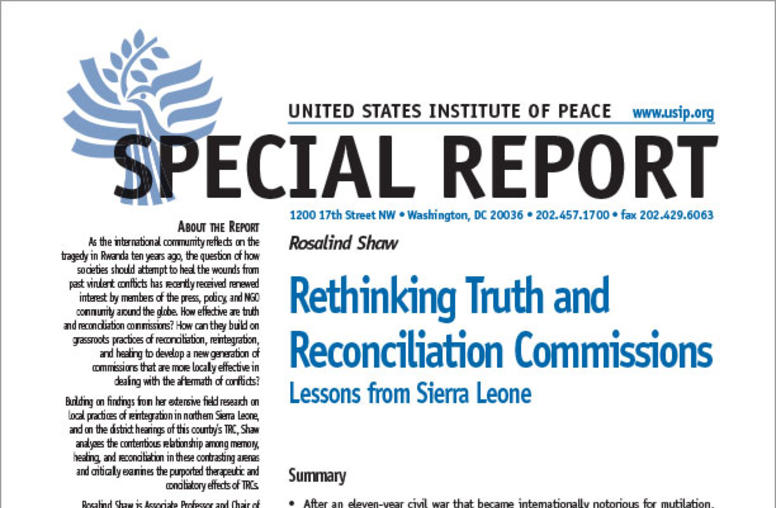
Rethinking Truth and Reconciliation Commissions: Lessons from Sierra Leone
As the international community reflects on the tragedy in Rwanda ten years ago, the question of how societies should attempt to heal the wounds from past virulent conflicts has recently received renewed interest by members of the press, policy, and NGO community around the globe.
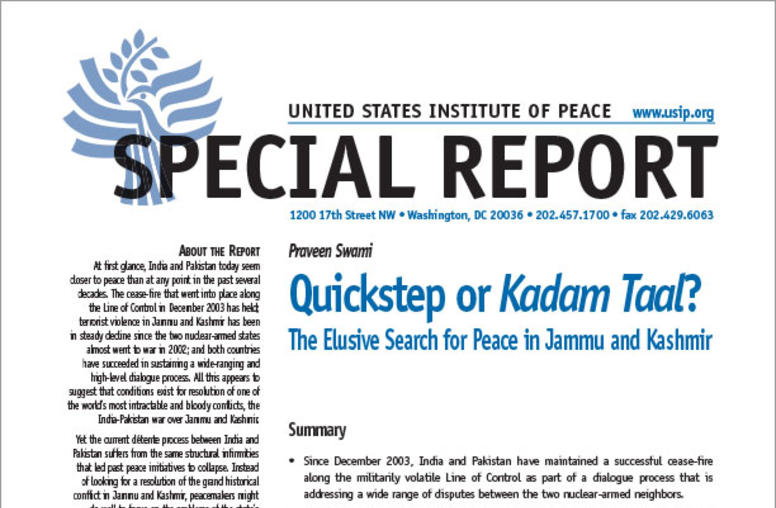
Quickstep or Kadam Taal?: The Elusive Search for Peace in Jammu and Kashmir
At first glance, India and Pakistan today seem closer to peace than at any point in the past several decades. Yet the current détente process between India and Pakistan suffers from the same structural infirmities that led past peace initiatives to collapse. peacemakers might do well to focus on the problems of the state’s peoples—thus building a base from which creative democratic solutions might eventually emerge.
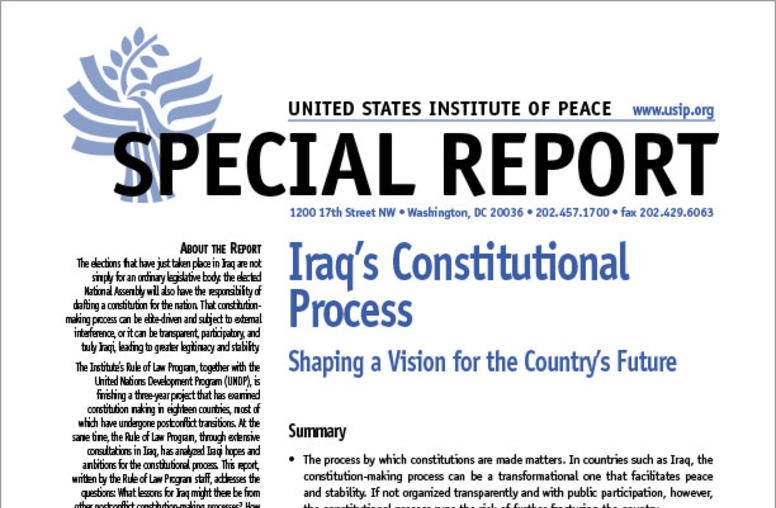
Iraq's Constitutional Process: Shaping a Vision for the Country's Future
The elections that have just taken place in Iraq are not simply for an ordinary legislative body: the elected National Assembly will also have the responsibility of drafting a constitution for the nation. That constitution-making process can be elite-driven and subject to external interference, or it can be transparent, participatory, and truly Iraqi, leading to greater legitimacy and stability.
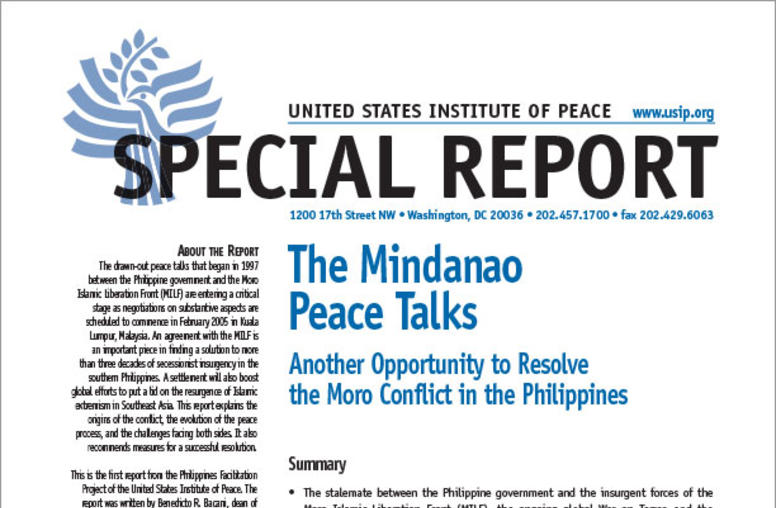
The Mindanao Peace Talks: Another Opportunity to Resolve the Moro Conflict in the Philippines
Summary The stalemate between the Philippine government and the insurgent forces of the Moro Islamic Liberation Front (MILF), the ongoing global War on Terror, and the government's desire for peace in the southern Philippines in order to bolster the country's economy have created an environment conducive to a resolution of the Muslim secessionist rebellion in the south. A leadership change in the MILF has also provided an opportunity to reinvigorate and seek new approaches to the peace ...
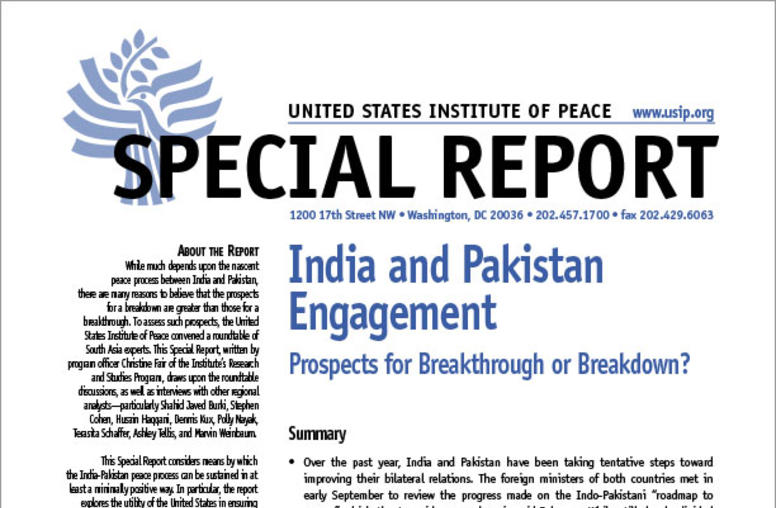
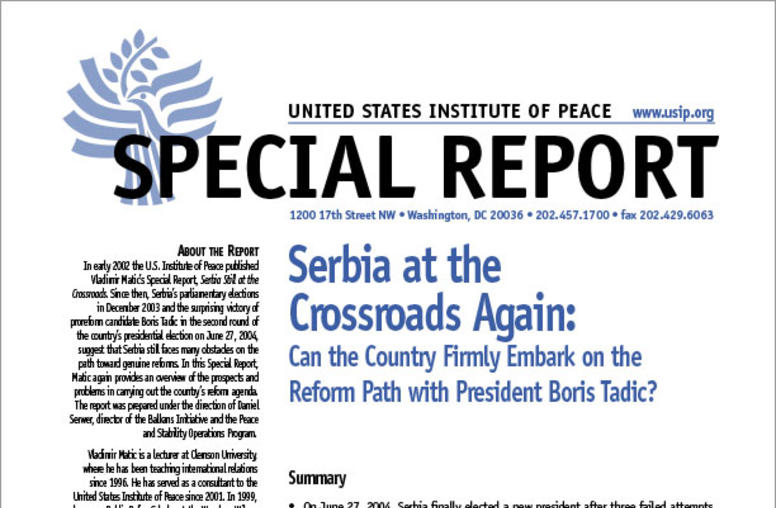
Serbia at the Crossroads Again: Can the Country Firmly Embark on the Reform Path with President Boris Tadic?
Serbia still faces many obstacles on the path toward genuine reforms. In this Special Report, Matic again provides an overview of the prospects and problems in carrying out the country's reform agenda. The report was prepared under the direction of Daniel Serwer, director of the Balkans Initiative and the Peace and Stability Operations Program
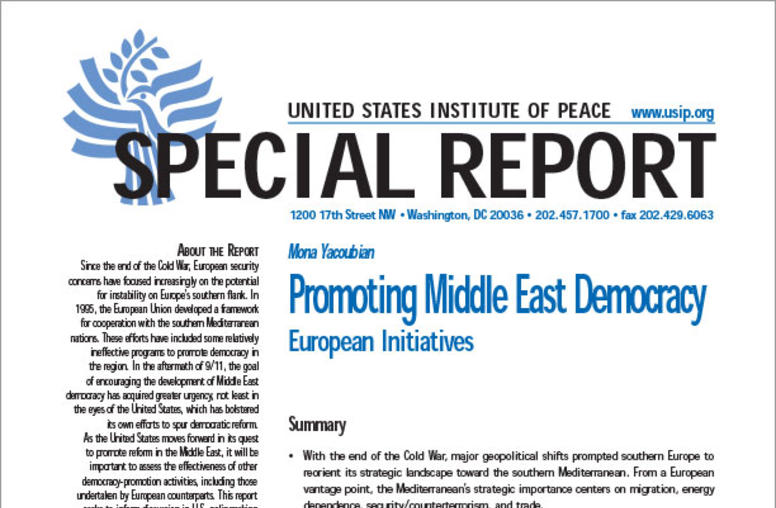
Promoting Middle East Democracy: European Initiatives
Summary With the end of the Cold War, major geopolitical shifts prompted southern Europe to reorient its strategic landscape toward the southern Mediterranean. From a European vantage point, the Mediterranean's strategic importance centers on migration, energy dependence, security/counterterrorism, and trade. Established in November 1995, the Euro-Mediterranean Partnership (EMP), also known as the Barcelona Process, was intended to be Europe's answer to growing concerns about instabil...